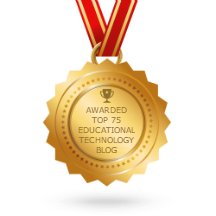Purposes
We share research from Project PLACE (Partnerships for Learning, Achievement, and Community Engagement), a federally funded National Professional Grant through the U.S. Department of Education’s Office of English Language Acquisition (OELA). Project PLACE worked with cohorts of K-8 educators in central Kentucky to support teachers’ abilities to (a) provide effective instruction for English Learners (ELs) in regular classrooms, and (b) enhance engagement with the families and communities of ELs. Our purpose is to share an effective PD model for supporting teachers’ ability to enhance family collaboration.
Perspectives
Grounded in perspectives on culturally responsive instruction (Gay, 2001; Ladson-Billings, 1995; Paris, 2012), funds of knowledge (González et al., 1995), and critical consciousness (Freire, 1970/1993), Project PLACE used the Culturally Responsive Instruction Observation Protocol (CRIOP; Powell & Cantrell, 2021) as a framework. Family collaboration, one of the six key aspects in CRIOP, involves four elements: (1) establishing equitable partnerships with families, (2) reaching out to families in non-traditional ways, (3) encouraging family involvement, and (4) learning about and using families’ funds of knowledge in classroom instruction.
Methods
Annual cohorts of 25 teachers participated in 8 days of intensive professional development throughout the school year accompanied by 8-10 in-school coaching sessions. Up to 5 teachers within each cohort participated as Advanced Leaders, taking 12 credits of graduate coursework, including a course in Family & Community Literacy, resulting in a graduate certificate in Teaching in Culturally and Linguistically Diverse Classrooms. Advanced Leaders, as well as alumni participants and other expert teachers, served as exemplars for participating teachers, particularly as they designed and enacted plans to enhance family engagement and implement community-based critical consciousness projects in their teaching. Teachers were observed and interviewed using the CRIOP instrument before and after their participation.
Results
In addition to our model for professional development, we share examples from Project PLACE teachers regarding partnering with multilingual families, enhancing family and community relationships, and including funds of knowledge as an integral part of teaching and learning. Findings include teachers (1) approaching visits from a learning-about-families-and-communities/funds of knowledge perspective (González et al., 1995) rather than a teacher-as-expert stance and finding alternate locations for meeting other than the home (Dantas & Coleman, 2010; McIntyre et al., 2001), (2) creating classroom curriculum that includes both learners and caregivers/community members to respond, , (3) teachers traditional reading logs to include multiple language and literacy practices and build on existing family practices (Perry, 2021), and (4) modifying the parent circle approach (Edwards & Turner, 2010) to create virtual parent circles that allowed parents of young children to share their hopes and fears during the virtual schooling experience of the Covid-19 pandemic.
Significance
Preservice teachers frequently receive little, if any, instruction in how to work effectively with families. It is therefore up to educational leaders to rely on or provide professional development to enhance relationships with diverse families and communities. Project PLACE provides an important model for developing and sustaining equitable partnerships with families and communities.






 12 Unique Blogs Are Written By Professors
12 Unique Blogs Are Written By Professors